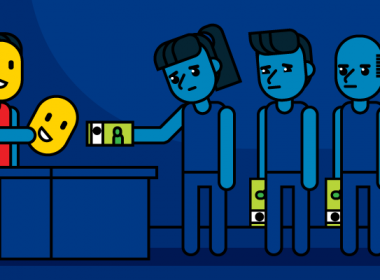Caffeine—a stimulant that is actually classified as a drug—is a saving grace for many students during exam season, when coffee and energy drinks start to replace sleep. Although this particular lifestyle can’t be described as healthy, the extent of caffeine’s harm is debated. Scientifically speaking, there is a significant amount of controversy surrounding the consumption of this stimulant—specifically around whether caffeine has the potential to stunt growth, and the limits that should be put on caffeine consumption.
Yet, that doesn’t stop North American society from being caffeine-dependent. In 2013, a study conducted by the National Coffee Association claimed that the cumulative American population drinks about 587 millions cups of coffee per day: That’s almost two cups per person per day. Similarly, according to the Coffee Association of Canada, the average coffee consumption for Canadian coffee drinkers over the age of 18 is roughly three cups per day.
The MayoClinic’s recommended dietary allowance (RDA) for caffeine is 400 milligrams daily, representing the amount of caffeine that most healthy adults can safely consume without any major side effects. While caffeine’s RDA is equivalent to about four cups of brewed coffee, for energy drinks and carbonated beverages, the number of drinks one can safely consume depends largely on the amount of caffeine per serving. When it comes to children, however, the MayoClinic advises that this demographic should not be consuming caffeine, and advises adolescents to limit their intake.
The main concern regarding caffeine consumption among youth is when caffeinated beverages begin to replace nutritious alternatives that are important for development.
“The bones [of young people] need calcium to keep growing, to achieve optimal bone density,” Sylvia Santosa, a registered dietician and associate professor in the Department of Exercise Science at Concordia University, told The McGill Tribune. “Drinking beverages with low nutritional density, such as coffee or soda, decreases the amount of nutrients consumed for optimal growth and development. Caffeine also binds minerals from the foods that we eat and decreases their absorption as well.”
This decreased absorption of calcium can subsequently impact growth and development. In response to these findings, the Canadian government has set RDA guidelines to try and moderate caffeine consumption among youth in different age categories. The growth effects, and other effects, of the stimulant are also dependent on the sensitivity of the individual.
“Some people are more sensitive to the effects of caffeine than others,” Santosa said. “Overconsumption of caffeine can cause side effects such as rapid heartbeat, irritability, restlessness, upset stomach, insomnia, and tremors.”
Restlessness or insomnia caused by an overconsumption of caffeine is another factor that affects growth. According to a study in The Journal of Clinical Investigation, a large amount of growth hormone is secreted during sleep in developing children. A caffeine-induced lack of sleep could further negatively impact growth and development.
Surprisingly, however, there is a lack of evidence indicating that caffeine stunts growth. Santosa described this rumour as an old wives tale.
“In general, consuming anything low in nutrients in place of foods that are high in nutrients can theoretically affect growth,” Santosa said.
Overall, the consensus is that, if not consumed in excess, caffeine is fairly safe. A study from the National Cancer Institute has even suggested that regular coffee consumers are at a lower risk of dying from various lifestyle diseases including heart disease, respiratory disease, diabetes mellitus, stroke, and numerous infections, although no links have been associated with cancer risk reduction. The real risks start to appear with the consumption of caffeine in quantities higher than the RDA allows, and when it is consumed in replacement of highly-nutritious foods.









